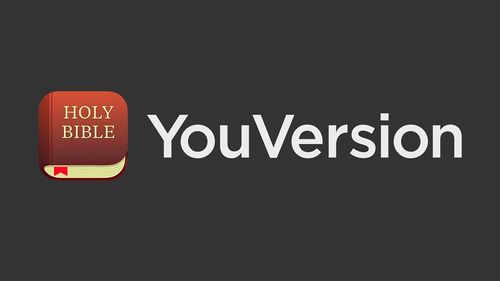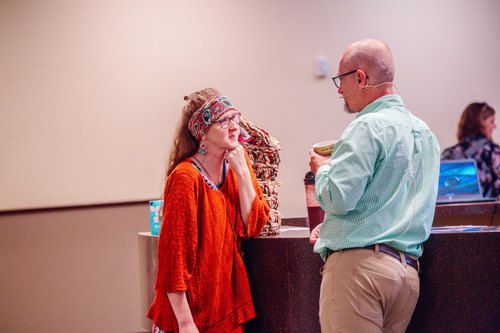can i trust the bible?
Listen to the article:
Most of what we know about Jesus and Christianity in general comes from the Bible. Now, let’s be honest: the Bible makes some pretty big claims. There are verses in this book that say that Jesus is the only way to heaven. There are stories about dead people being brought back to life. It describes how the world began and how it will end. It outlines a pretty specific moral code that many people still follow today, and it is easily the best-selling book of all-time. Like. EASILY. The Bible has sold 42 times as many copies as Harry Potter, and that’s with the entire Bible being online for free since Harry Potter was written.
So for a book that makes all these big claims, it’s important and responsible for us to ask this question: Is the Bible really trustworthy? Did the events outlined here really happen, and how do we know for sure?
So for a book that makes all these big claims, it’s important and responsible for us to ask this question: Is the Bible really trustworthy? Did the events outlined here really happen, and how do we know for sure?
What Do You Know?
We’ll get to those questions, but first, let me ask you this: How do you KNOW anything? Who do you trust unconditionally, and what are you absolutely sure of?
What year was Declaration of Independence written? Who wrote it, and who signed it? Are you sure? The Founding Fathers of America did a lot of importance stuff in 1776. At the time of this recording, that was 247 years ago, or roughly 8 generations. So, there are definitely no living humans today who witnessed those fateful days, and you’d be lucky if your great-great-great-great-great-grandparents MAY have known someone their PARENT’s age who was around during the Revolutionary War. So how do you know what happened in Philadelphia in 1776? Have you ever even been to Philadelphia?
Or how about this: Where were you on September 11, 2001 (if you were even alive then)? Again, are you sure? For most of us, that day is imprinted pretty heavily on our minds. I remember where I was. I’m sure of it. Except, maybe I’m not. A 2016 survey found that 40% of Americans misremember where there were on 9/11. Almost half of us remember something we’re POSITIVE about—and we are wrong.
Or here’s another tricky one: What did you have for breakfast today? What did you have for lunch last Tuesday? When was the last time you filled up your gas tank?
Ok, you get it. Knowing or recalling details is very difficult for us silly little humans. We have amazing brains, but still, knowing for certain what is true and what is false is incredibly hard—especially in our culture today full of misinformation and fake news.
What you know can really only come from two sources: Something you’ve personally experienced yourself, or something you’ve heard or read or watched from someone else. That’s it. That’s where knowledge comes from.
We’ve established that we’re not great at remembering things we experienced ourselves. But what about books and other sources? How do you decide which ones are true and which ones aren’t?
What year was Declaration of Independence written? Who wrote it, and who signed it? Are you sure? The Founding Fathers of America did a lot of importance stuff in 1776. At the time of this recording, that was 247 years ago, or roughly 8 generations. So, there are definitely no living humans today who witnessed those fateful days, and you’d be lucky if your great-great-great-great-great-grandparents MAY have known someone their PARENT’s age who was around during the Revolutionary War. So how do you know what happened in Philadelphia in 1776? Have you ever even been to Philadelphia?
Or how about this: Where were you on September 11, 2001 (if you were even alive then)? Again, are you sure? For most of us, that day is imprinted pretty heavily on our minds. I remember where I was. I’m sure of it. Except, maybe I’m not. A 2016 survey found that 40% of Americans misremember where there were on 9/11. Almost half of us remember something we’re POSITIVE about—and we are wrong.
Or here’s another tricky one: What did you have for breakfast today? What did you have for lunch last Tuesday? When was the last time you filled up your gas tank?
Ok, you get it. Knowing or recalling details is very difficult for us silly little humans. We have amazing brains, but still, knowing for certain what is true and what is false is incredibly hard—especially in our culture today full of misinformation and fake news.
What you know can really only come from two sources: Something you’ve personally experienced yourself, or something you’ve heard or read or watched from someone else. That’s it. That’s where knowledge comes from.
We’ve established that we’re not great at remembering things we experienced ourselves. But what about books and other sources? How do you decide which ones are true and which ones aren’t?
Ancient Texts
There are a lot of different directions we could go here, but let’s look at two important variables that scholars agree are important for verifying truth in documents and literature. For most really old documents, we don’t have an original copy. Papers (or scrolls or tablets or parchment) just don’t last very long. Even today’s highest quality paper, if kept under perfect conditions, will still disintegrate eventually, so lesser-quality stuff from ancient civilizations just didn’t last the test of time. When talking about the Bible or any old book, what we know today is based off what we find on COPIES of the original.
Obviously, if we only have one copy of an old document, there’s a lot of margin for error, and it’s inherently less trustworthy. Important books would have been duplicated, AND multiple copies can help discern natural human errors. For instance, is THIS an I or a 1? Is this an a or an o? What if one copy says 4,000 people attended an event, while another says 9,000? Could that 9 really be a 4? The more copies you have, the more likely you are to be able to discern what the original author intended. More copies = more reliable.
Let’s look at copies of the Bible compared to other ancient documents. Let’s start with an ancient work called The Histories. This was written by a Greek historian named Herodotus, and scholars often refer to him as the Father of History. He was one of the first to document Western civilization. Obviously, important book, important dude. We have 8 copies of his book.
In school you probably also learned about a guy named Plato. He had a collection of work called the Tetralogies that was also a very important historical reference with very influential thoughts on justice and philosophy. Many consider it to be one of the most important masterpieces of Greek literature. Similar to Herodotus, we have 7 copies of Plato’s work.
To keep this brief, let’s move ahead and look at the Bible. How many copies do we have of the ancient Old and New Testament texts? For the Old Testament, we have about 731 copies of the original texts, with the oldest dating back to 125 BC. That’s a lot of copies, and that’s a long time ago. For the New Testament, it’s even more impressive with more than 5,000 copies of the original. 5,000! Compare to 7 or 8 of those old Plato and Herodotus guys! That’s not even CLOSE.
Obviously, if we only have one copy of an old document, there’s a lot of margin for error, and it’s inherently less trustworthy. Important books would have been duplicated, AND multiple copies can help discern natural human errors. For instance, is THIS an I or a 1? Is this an a or an o? What if one copy says 4,000 people attended an event, while another says 9,000? Could that 9 really be a 4? The more copies you have, the more likely you are to be able to discern what the original author intended. More copies = more reliable.
Let’s look at copies of the Bible compared to other ancient documents. Let’s start with an ancient work called The Histories. This was written by a Greek historian named Herodotus, and scholars often refer to him as the Father of History. He was one of the first to document Western civilization. Obviously, important book, important dude. We have 8 copies of his book.
In school you probably also learned about a guy named Plato. He had a collection of work called the Tetralogies that was also a very important historical reference with very influential thoughts on justice and philosophy. Many consider it to be one of the most important masterpieces of Greek literature. Similar to Herodotus, we have 7 copies of Plato’s work.
To keep this brief, let’s move ahead and look at the Bible. How many copies do we have of the ancient Old and New Testament texts? For the Old Testament, we have about 731 copies of the original texts, with the oldest dating back to 125 BC. That’s a lot of copies, and that’s a long time ago. For the New Testament, it’s even more impressive with more than 5,000 copies of the original. 5,000! Compare to 7 or 8 of those old Plato and Herodotus guys! That’s not even CLOSE.
The Accuracy of Scribes
But here’s another thing that’s really interesting. Going this far back in history, we obviously didn’t have copy machines, cameras, or printers, so copies of books were written by hand by people called scribes. Copying important documents was their job and their life. Scribes were highly educated when not very many people were, and being a scribe was a noble profession.
When making copies of the Bible, the scribes realized how important their job was. They didn’t want to leave anything to chance or human error, so they went above and beyond to ensure their copies were reliable. They had to use specific ink. They spoke every word aloud as they wrote it. Their supervisors checked their work within 30 days, and here’s the kicker.
Scholars and historians note that original Hebrew scribes would count every single paragraph, word, and letter they wrote. When they were finished with a copy, they would find the very MIDDLE paragraph, word, and letter, and that letter HAD to match the original they were copying. If it didn’t, or if there were any discrepancies, that copy was out. Didn’t count. Had to start over.
That’s incredible! I don’t think I’ve been that careful about anything ever! These guys wrote with their hands all day every day, and I imagine they were pretty motivated to not have to start over. If ANY book ever has any credibility, surely it would be the ones copied by these scribes.
When making copies of the Bible, the scribes realized how important their job was. They didn’t want to leave anything to chance or human error, so they went above and beyond to ensure their copies were reliable. They had to use specific ink. They spoke every word aloud as they wrote it. Their supervisors checked their work within 30 days, and here’s the kicker.
Scholars and historians note that original Hebrew scribes would count every single paragraph, word, and letter they wrote. When they were finished with a copy, they would find the very MIDDLE paragraph, word, and letter, and that letter HAD to match the original they were copying. If it didn’t, or if there were any discrepancies, that copy was out. Didn’t count. Had to start over.
That’s incredible! I don’t think I’ve been that careful about anything ever! These guys wrote with their hands all day every day, and I imagine they were pretty motivated to not have to start over. If ANY book ever has any credibility, surely it would be the ones copied by these scribes.
This, or Nothing
But, look, all of the facts I just outlined were written in books and articles and journals. So maybe right now you’re questioning if you can even trust THOSE sources. I get it. You can—and maybe you should—question everything. But here’s where I land with the Bible:
If I trust my memory, and if I trust ANY book I’ve ever read, I can trust the Bible. There is NO publication that has faced as much scrutiny as the Bible has, and for a very, very old book, it holds up. There are some difficult passages we have to wrestle with, and if you do some Googling you can probably find some questions about the Bible that are hard to answer. I’m not trying to hide those—go look them up yourself if you’re interested. But if you’re having trouble trusting the Bible, you also can’t believe anything you learned in school about Plato or Caesar or Washington or Lincoln or yesterday’s New York Times.
At some point, you have to trust the sources. If you don’t, you can’t KNOW much of anything.
And one more thing: Albert Einstein once said, “Truth is what stands the test of experience.” Truth endures experience. Or, said another way, “Truth stands the test of time, and lies are soon exposed.” King Solomon wrote that in the Bible, a long time before Einstein.
New ideas pop up all the time, and lies are soon squelched. Truth lingers, and this book has lingered for a long time. If you trust ANY book, this is a good one to start with.
If I trust my memory, and if I trust ANY book I’ve ever read, I can trust the Bible. There is NO publication that has faced as much scrutiny as the Bible has, and for a very, very old book, it holds up. There are some difficult passages we have to wrestle with, and if you do some Googling you can probably find some questions about the Bible that are hard to answer. I’m not trying to hide those—go look them up yourself if you’re interested. But if you’re having trouble trusting the Bible, you also can’t believe anything you learned in school about Plato or Caesar or Washington or Lincoln or yesterday’s New York Times.
At some point, you have to trust the sources. If you don’t, you can’t KNOW much of anything.
And one more thing: Albert Einstein once said, “Truth is what stands the test of experience.” Truth endures experience. Or, said another way, “Truth stands the test of time, and lies are soon exposed.” King Solomon wrote that in the Bible, a long time before Einstein.
New ideas pop up all the time, and lies are soon squelched. Truth lingers, and this book has lingered for a long time. If you trust ANY book, this is a good one to start with.



